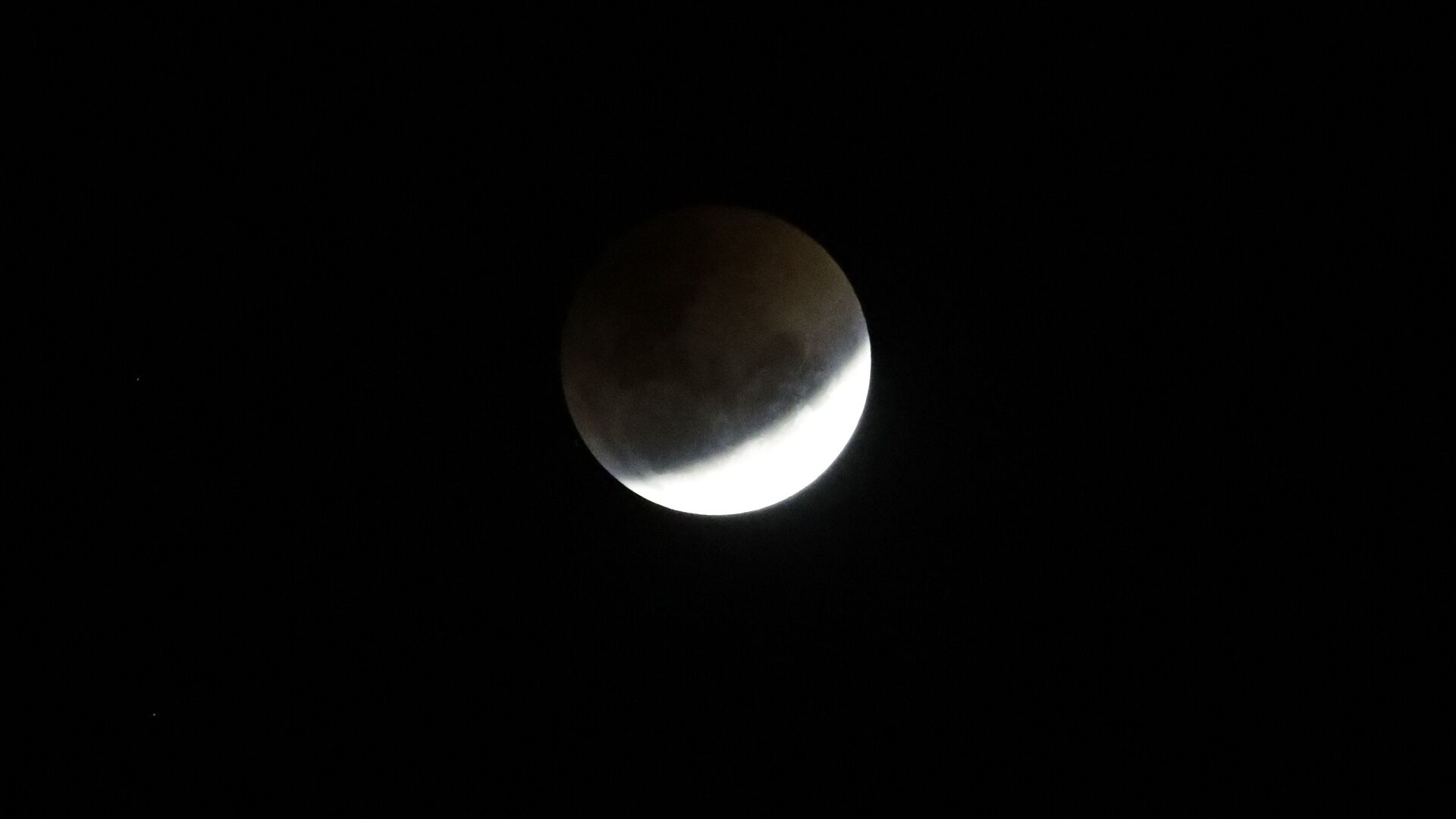https://sputnikglobe.com/20211118/sky-gazers-hold-tight-and-get-ready-to-witness-longest-lunar-eclipse-of-this-century-1090823812.html
Sky-Gazers Hold Tight and Get Ready to Witness Longest Lunar Eclipse of This Century
Sky-Gazers Hold Tight and Get Ready to Witness Longest Lunar Eclipse of This Century
Sputnik International
This will be the the longest lunar eclipse in the 21st century - such a long partial eclipse has not been seen since 18 February 1440. According to... 18.11.2021, Sputnik International
2021-11-18T12:29+0000
2021-11-18T12:29+0000
2023-04-12T16:57+0000
celestial body
lunar eclipse
science & tech
moon
earth
space
https://cdn1.img.sputnikglobe.com/img/106675/36/1066753613_0:165:3432:2096_1920x0_80_0_0_b0a1d7bbf57c49cee4ee1a631d56b6b8.jpg
Enthusiasts of all that goes on in outer space have something really special to look forward to on Friday as the world will witness the second lunar eclipse of the year. However, it's not a normal one. This lunar eclipse, also called the Beaver Moon eclipse, will be the longest partial lunar eclipse in the past 580 years. It will also be the longest eclipse in 1,000 years. Reportedly, the total duration of this rare eclipse will be 3 hours 28 minutes and 24 seconds. The eclipse will be visible from several parts of the world including Asia, some parts of Europe, and West Africa. Interestingly, the entire episode of the eclipse will be best viewed from North America. At 2.18am EST (7.18 GMT) on Friday, the moon will arrive at the umbra which is the darker part of the earth's shadow. This is the best moment to watch the eclipse which will last for about 3.5 hours and then will exit the umbra at 5.47am EST (10.47 GMT). The eclipse will end at 6.03am EST (11.03 GMT). The skygazers can find more details about where best to experience this once-in-a-lifetime event on the NASA website.
earth
Sputnik International
feedback@sputniknews.com
+74956456601
MIA „Rossiya Segodnya“
2021
Sushmita Panda
https://cdn1.img.sputnikglobe.com/img/07e5/05/12/1082926186_0:0:2048:2048_100x100_80_0_0_4474d0d7e27a36878eb8727832be74b4.jpg
Sushmita Panda
https://cdn1.img.sputnikglobe.com/img/07e5/05/12/1082926186_0:0:2048:2048_100x100_80_0_0_4474d0d7e27a36878eb8727832be74b4.jpg
News
en_EN
Sputnik International
feedback@sputniknews.com
+74956456601
MIA „Rossiya Segodnya“
Sputnik International
feedback@sputniknews.com
+74956456601
MIA „Rossiya Segodnya“
Sushmita Panda
https://cdn1.img.sputnikglobe.com/img/07e5/05/12/1082926186_0:0:2048:2048_100x100_80_0_0_4474d0d7e27a36878eb8727832be74b4.jpg
celestial body, lunar eclipse, science & tech, moon, earth, space
celestial body, lunar eclipse, science & tech, moon, earth, space
Sky-Gazers Hold Tight and Get Ready to Witness Longest Lunar Eclipse of This Century
12:29 GMT 18.11.2021 (Updated: 16:57 GMT 12.04.2023) This will be the the longest lunar eclipse in the 21st century - such a long partial eclipse has not been seen since 18 February 1440. According to astronomers, the next lunar eclipse of this duration is likely to occur on 8 February 2669.
Enthusiasts of all that goes on in outer space have something really special to look forward to on Friday as the world will witness the second lunar eclipse of the year.
However, it's not a normal one.
This lunar eclipse, also called the Beaver Moon eclipse, will be the longest partial lunar eclipse in the past 580 years. It will also be the longest eclipse in 1,000 years.
Reportedly, the total duration of this rare eclipse will be 3 hours 28 minutes and 24 seconds.
The eclipse will be visible from several parts of the world including Asia, some parts of Europe, and West Africa. Interestingly, the entire episode of the eclipse will be best viewed from North America.
At 2.18am EST (7.18 GMT) on Friday, the moon will arrive at the umbra which is the darker part of the earth's shadow. This is the best moment to watch the eclipse which will last for about 3.5 hours and then will exit the umbra at 5.47am EST (10.47 GMT).
The eclipse will end at 6.03am EST (11.03 GMT).
The skygazers can find more details about where best to experience this once-in-a-lifetime event on the
NASA website.


